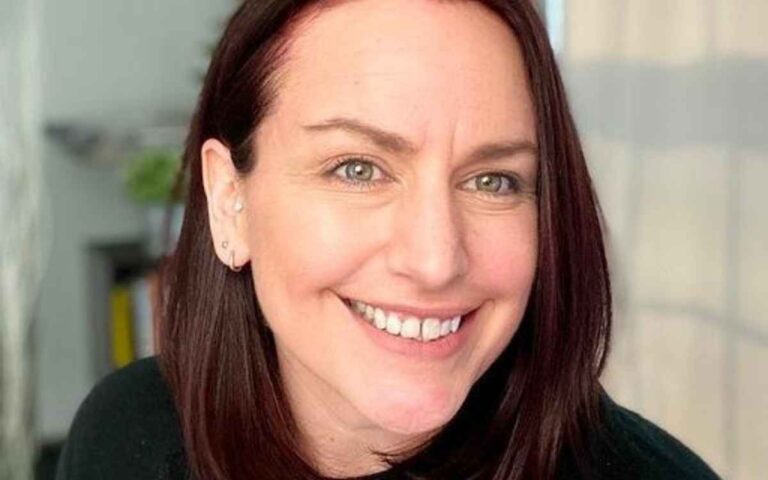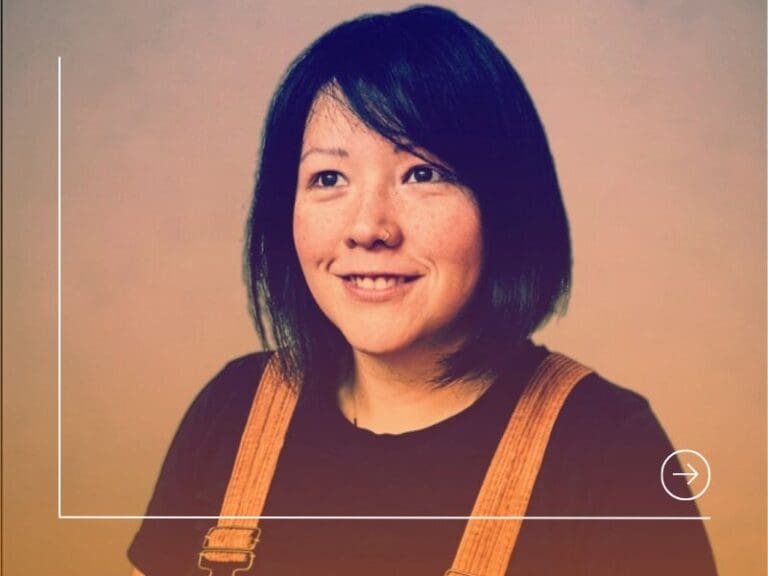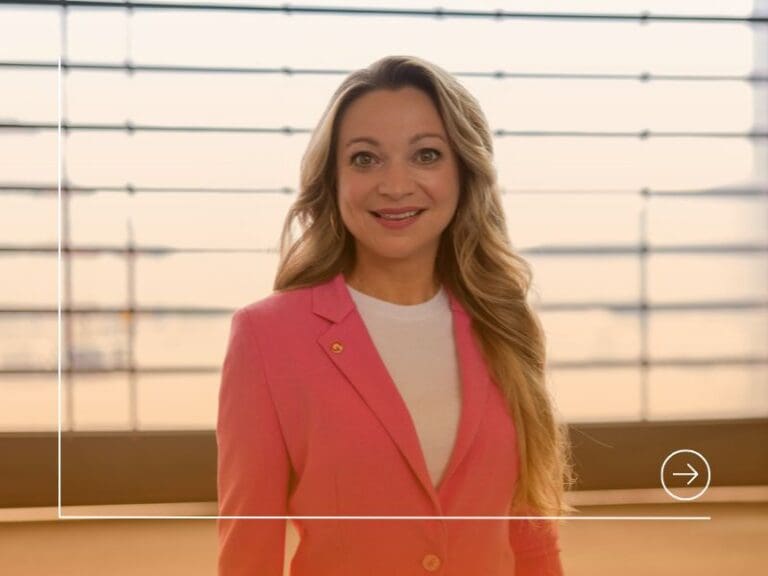Cat Starkey’s engineering career spans the past 20+ years
Cat’s experience is diverse having worked as a software developer, architect, and engineering leader for SaaS companies large and small. Like many engineers, she thrives on problem-solving – whether it’s technologies, businesses, or people. Her varied experience with different workplace cultures has shaped her leadership style and determination to actively provide a healthy work environment — particularly in her efforts to support women and other underrepresented groups in tech. She is currently the Chief Technology Officer at Expel, working with other leaders to craft a culture of support, respect, self-care, transparency, and humility.
How did you land your current role? Was it planned?
Before I became Expel’s Chief Technology Officer (CTO), I was vice president of engineering, and honestly for a long time I had no interest in joining the C-suite. But when the role opened, I began to consider what it might mean to represent engineering in the C-suite.
My perspective changed after having a lot of frank discussions with the other members of our leadership team. I was (and continue to be) vocal that as a parent, and generally as a person, work-life balance is critical to me and I couldn’t dedicate 24 hours a day, seven days a week to the job. I was pleasantly surprised to find the rest of the leadership at Expel agreed with me, and also actively work to balance their work and home lives, so they understood.
Expel provides a lot of opportunities for people to explore different aspects of their career paths, and in the case of executive engineering leadership, I knew I could be the engineering voice in the highest level business decisions, while continuing to do the organisational leadership work that I love.
So with all of this in mind, I saw this role as a great opportunity to try to be the kind of leader I would have benefitted from as a young woman in a male-dominated industry. After the previous CTO departed, I essentially did the job for a period of time—both to make sure it was what I wanted and what the company needed—until the point where I was officially promoted to CTO.
What are the key roles in your field of work, and why did you choose your current expertise?
My interest in engineering and computer science really started in elementary school, when I took a coding class. I experienced this moment of delight when the string of letters I typed made the little turtle on the screen move (anyone remember LOGO turtle?). My dad noticed my interest and really fed into it. He bought me an Atari computer and encouraged me to continue learning and practising.
To no one’s surprise, programming was mainly a male-driven culture. But I have two brothers, and the more I learned, the cooler I felt. It was like I was infiltrating the boys’ club. My parents continue to encourage me, and I always felt a lot of joy and excitement in making this work. Frankly, I never really considered doing anything else!
Over time, my interest in technology became less about programming and architecture, and more about getting humans to work together better. It was still about problem solving and root cause analysis, but applied to the teams and individuals I worked with.
Did you (or do you) have a role model in tech or business in general?
Definitely. Throughout my career I’ve had a few engineering managers I looked to as role models. But before Expel, I admittedly held a bias against executive engineering leadership, and thus historically hadn’t held them in very high regard as mentors or role models. In my experience, they contributed to a toxic culture, were overly self promotional, and treated teams like expendable resources, rather than human beings.
We don’t tolerate that kind of behaviour at Expel, and although we sometimes need to make difficult business decisions, we don’t discount the impact those decisions have on the people we work with. Because of that, I consider a number of current and past Expel executives and leaders to be role models, namely our CEO and co-founder Dave “merk” Merkel, our former CTO Pete Silberman, and our former CPO Matt Peters. They’ve been excellent examples of leaders who put their people first.
What are you most proud of in your career, so far?
This is a tough one to answer, and when I think about it, it’s less of an engineering milestone or a problem that our team solved, and more about when I’ve stood up for people in organisations that weren’t being treated well. Those are the moments I’m most proud of.
I also take a lot of pride in the engineering internship program we created at Expel, which was designed to attract people from programming boot camps. We did this intentionally to increase diversity of experience on our teams, and our engineering org pulled together to ensure it was a valuable experience for them. As a result, we brought in two exceptional interns who eventually became full-time employees.
What does an average work day look like for you?
I’m sure it’s no surprise that there’s no average day for me! I spend a lot of time context switching across different projects, relationships, and duties. (Sometimes I catch myself over-rotating and trying to focus on too many things at once.)
I generally have a lot of meetings, which can make the days go by quickly, but also means that I have to be very intentional about scheduling time for deep thinking and problem solving—rather than handling things in five- or seven-minute increments.
One of the things I love about Expel is that we recognize and understand each other when we need time and support to manage the things happening outside of our day jobs. Our work is intense, but it doesn’t become our entire identity.
Are there any specific skills or traits that you notice companies look for when you’re searching for roles in your field?
Many companies focus solely on the “hard skills,” like coding and programming, to the point that the humanity of the candidate gets lost in the interview process—taking some of those equally important “soft skills” along with it. I encourage anyone looking for a role in this field to seek out a workplace that takes a more holistic approach. At Expel, we actually look for specific traits first before the hard skills. We’d rather have someone that’s demonstrated their willingness and ability to learn and work collaboratively rather than relying on algorithm roulette and the score from a coding test. We find the strongest candidates are the ones that bring the curiosity, drive, and interpersonal skills that elevate their technical abilities, making for a more well-rounded teammate.
Has anyone ever tried to stop you from learning and developing in your professional life, or have you found the tech sector supportive?
To be frank, lots of people have tried to stand in my way, take credit for my work, put me down, and hold me back—especially early in my career. This is the unfortunate truth for lots of women, regardless of their industry. It can be extremely disheartening, but it also taught me the value of fortitude, and how standing up for myself can be a powerful tool to take some of that power back.
Despite your title, tenure, or experience, there will always be people who doubt your expertise, particularly for women in STEM. Occasionally, I’ve had to throw down the technical gauntlet, so to speak, to assert myself and prove I really know my stuff. While that sometimes feels good, it’s adversarial and unproductive, and I’m thankful I no longer have to deal with that kind of showdown in my current role.Over time I’ve found success in forging strong partnerships and allies, and relationships have helped me manage through the toxic ones.
Have you ever faced insecurities and anxieties during your career, and how did you overcome them?
Of course! I, like many women, am no stranger to imposter syndrome. In fact, I find it helpful to remember that everyone has those unsure moments. But stubbornness and bravery have served me well. I’m a big believer in doing things that make me uncomfortable, especially if change needs to happen.
When I do doubt myself, I try to remember why I’m here: to be the kind of leader I needed when I was starting out in my career. If we ever want to see change, it’s going to require us all doing what we can to break from the mould and create the sort of workplaces where we can all thrive. Whenever those feelings of imposter syndrome creep in, I remind myself that what I’m doing isn’t just for me—it’s for all the talented women who also deserve a seat at the table.
Entering the world of work can be daunting. Do you have any words of advice for anyone feeling overwhelmed?
It’s okay to not know what you want to do or have a five-year plan. You don’t have to think about the future in terms of the goals, or have a fixed mindset on where you want to be at some point down the road. I’ve chosen steps in my path based on what felt like the right fit at the right time, based on a number of factors – interesting work, opportunity to learn, good people. Your journey will never be what you think it will be, so you have to be flexible and adapt to what life throws at you.
What advice would you give other women wanting to reach their career goals in technology?
Thinking back on my journey, one thing that kept me in engineering was my stubbornness: never giving up, and never allowing anyone else to tell me what I could and couldn’t do helped me reach my goals. I also can’t emphasise enough how important it is to use your voice. I wish I figured out sooner that being vocal is the best avenue to create change, rather than settling for the status quo. If I could go back, I’d instil in myself a better sense of self worth to know I didn’t have to put up with that sort of thinking.
When going for a new role, remember that you’re interviewing the company as much as they’re interviewing you. Ask questions about the culture, and watch for red flags. If the interviewer gets defensive as a result of your questioning, that’s a bad sign. Ask how the organisation supports a diverse workplace, what success looks like, the tools the team provides, and more. It’s up to you to know what you’re getting into so that you can be successful.
At the end of the day, no company or role is 100% perfect. Even companies with a healthy culture like Expel have room for improvement, and it’s important to look for organisations that understand a positive company culture relies on continuous learning and growth. It’s important to find support systems and communities that lift you up, beyond your workplace. Orgs like SheCanCode are great for supporting people in this world, serving as a sounding board, forum for sharing advice, and even networking. In this male-driven industry, it’s critical to lift up the women around you to ensure all our voices are heard.








